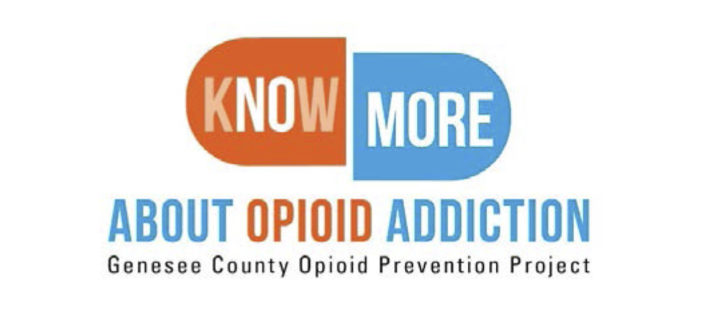As part of the Greater Flint Health Coalition’s Community-Wide strategy to address the opioid epidemic, a new Community Toolkit is now available to Flint and Genesee County residents. This Community Toolkit includes information about the opioid epidemic, risks and side effects of opioids, signs and symptoms of addiction or overdose, and much more. This Toolkit is provided in tandem with a Quick Reference Referral Guide for Substance Use Treatment.
As a component of the broader community-wide opioid response, a web-based resource for both residents as well as healthcare professionals is also live. KnowMoreGenesee.org is designed to be a one-stop shop for national resources, legislation, healthcare provider specific information, as well as local resources and events such as Drug Take Back Days and Genesee County pharmacies that distribute naloxone. “These educational resources are just one component of a multi-sector strategy to both treat opioid addiction and prevent future misuse in Genesee County,” states Kirk Smith, President & CEO of the Greater Flint Health Coalition. To support further community education, a prevention campaign is also being rolled out to increase awareness about opioid addiction and reducing stigma.
The goal of the Greater Flint Health Coalition’s Community-Wide Strategy to Address the Opioid Epidemic is to engage children, seniors, and community residents most impacted by the opioid crisis through a multi-sector effort to build and strengthen workforce capacity, utilize upstream prevention strategies, coordinate care, services, and community resources to improve the treatment for and prevention of opioid misuse. Key project partners include: Genesee Health System, Genesee County Medical Society, New Paths, Families Against Narcotics (FAN), Genesee Intermediate School District, Hurley Medical Center, McLaren Flint, Ascension Genesys Hospital, Genesee County Health Department, Michigan State University, and Health Alliance Plan.
This multi-sector strategy, being implemented through a two-year grant from the Michigan Health Endowment Fund, has already demonstrated success after the first year. One key highlight is the integration of certified peer-recovery coaches in clinical settings through New Paths’ Opiate Overdose Recovery Program (OORP). During the first year of the grant OORP has been integrated into all three Genesee County hospitals and has supported over 650 residents with connections to treatment. Additional highlights include mass distribution of the Genesee County Opioid Prescriber Toolkit and development of educational materials for school-age children and their families. For more info or to order a Toolkit, visit KnowMoreGenesee.org.








